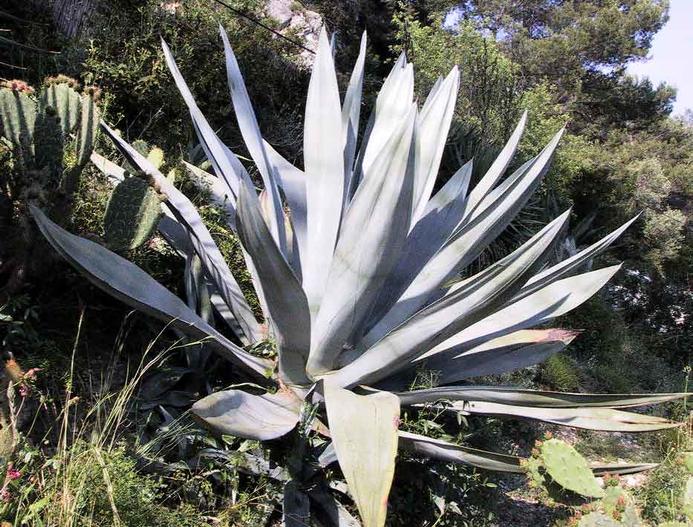Weber Agave
(Agave weberi)
Weber Agave (Agave weberi)
/
/

Juan Ignacio 1976
CC BY-SA 2.0
Image By:
Juan Ignacio 1976
Recorded By:
Copyright:
CC BY-SA 2.0
Copyright Notice:
Photo by: Juan Ignacio 1976 | License Type: CC BY-SA 2.0 | License URL: https://creativecommons.org/licenses/by-sa/2.0/ | Uploader: Juan Ignacio 1976 | Publisher: Flickr























Estimated Native Range
Summary
Agave weberi, commonly known as Weber Agave, is an evergreen succulent native to arid and semi-arid regions, including the Chihuahuan Desert and other xeric scrublands in Mexico. It is a large, rosette-forming perennial that can reach up to 5 feet (1.5 meters) in height and width, with individual rosettes spreading by short rhizomes. The leaves are broad, fleshy, and gray-green, with a spine at the tip and marginal teeth along the edges. Weber Agave is particularly noted for its impressive flowering stalks, which can soar to a height of 26 feet (8 meters) and bear numerous yellow flowers, each up to 3 inches (8 cm) long, during the summer months. The flowers are quite showy and attract pollinators such as bats and moths.
Weber Agave is valued for its drought tolerance and architectural form, making it a striking choice for xeriscaping, rock gardens, and as a focal point in dry landscapes. It is also used in large containers for patios and courtyards. This plant requires minimal maintenance and thrives in full sun with very low water needs once established. It prefers well-draining soils and is tolerant of poor soil conditions. While generally disease-free, Agave weberi can be susceptible to agave snout weevil, which can cause damage to the core of the plant. It is important to note that after flowering, the individual rosette dies, but new offsets typically form to replace it.CC BY-SA 4.0
Weber Agave is valued for its drought tolerance and architectural form, making it a striking choice for xeriscaping, rock gardens, and as a focal point in dry landscapes. It is also used in large containers for patios and courtyards. This plant requires minimal maintenance and thrives in full sun with very low water needs once established. It prefers well-draining soils and is tolerant of poor soil conditions. While generally disease-free, Agave weberi can be susceptible to agave snout weevil, which can cause damage to the core of the plant. It is important to note that after flowering, the individual rosette dies, but new offsets typically form to replace it.CC BY-SA 4.0
Plant Description
- Plant Type: Succulent
- Height: 2-3 feet
- Width: 3-4 feet
- Growth Rate: Moderate
- Flower Color: Yellow
- Flowering Season: Spring, Summer
- Leaf Retention: Evergreen
Growth Requirements
- Sun: Full Sun
- Water: Very Low, Low
- Drainage: Fast
Common Uses
Bee Garden, Bird Garden, Border Plant, Drought Tolerant, Fire Resistant, Hummingbird Garden, Low Maintenance, Potted Plant, Rabbit Resistant, Rock Garden, Showy Flowers, Street Planting
Natural Habitat
Native to arid and semi-arid regions, including the Chihuahuan Desert and other xeric scrublands in Mexico
Other Names
Common Names: Weber’s Century Plant, Maguey Liso
Scientific Names: , Agave weberi, Agave neglecta, Agave franceschiana,
GBIF Accepted Name: Agave weberi J.F.Cels ex J.Poiss.